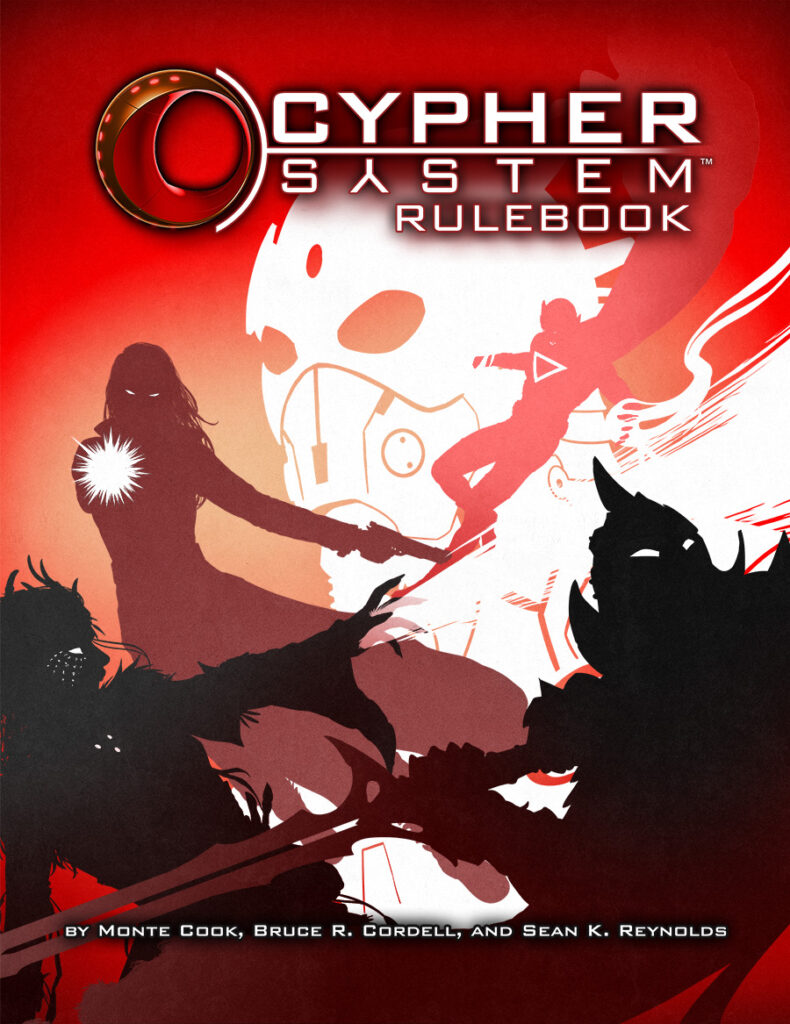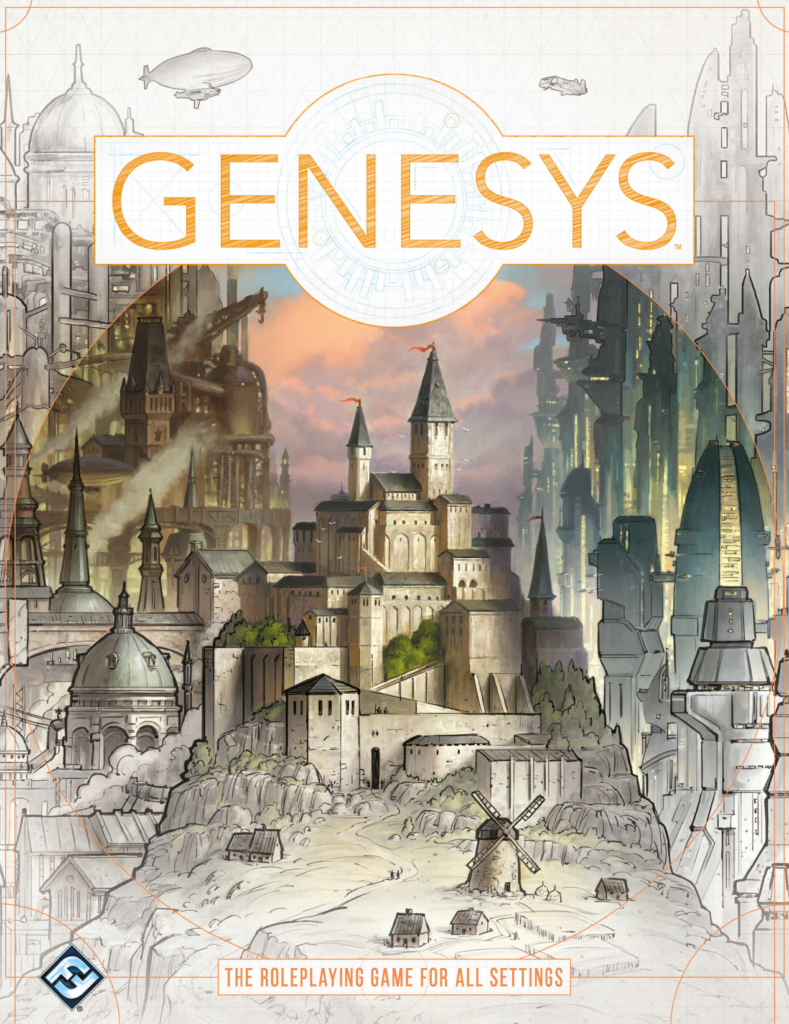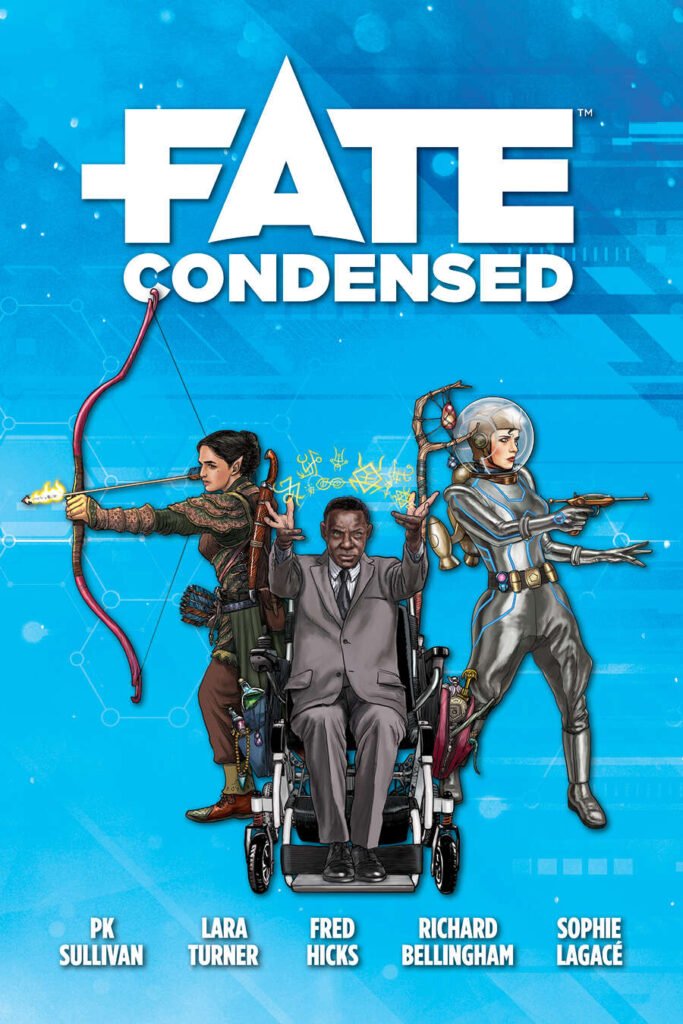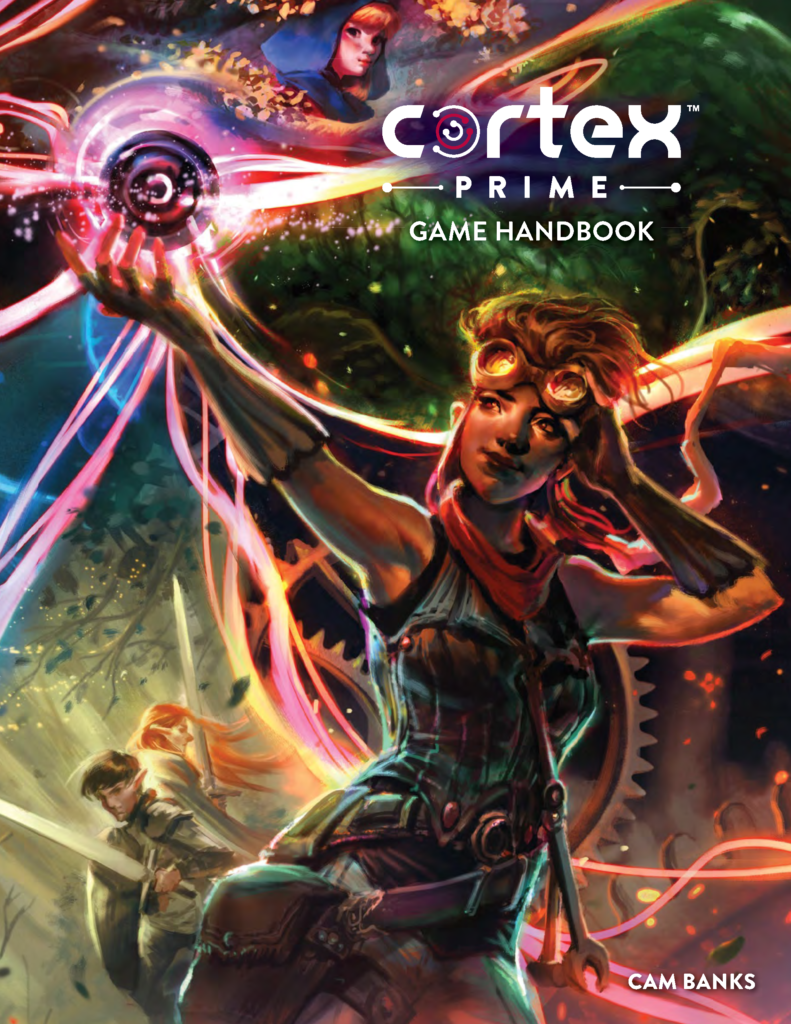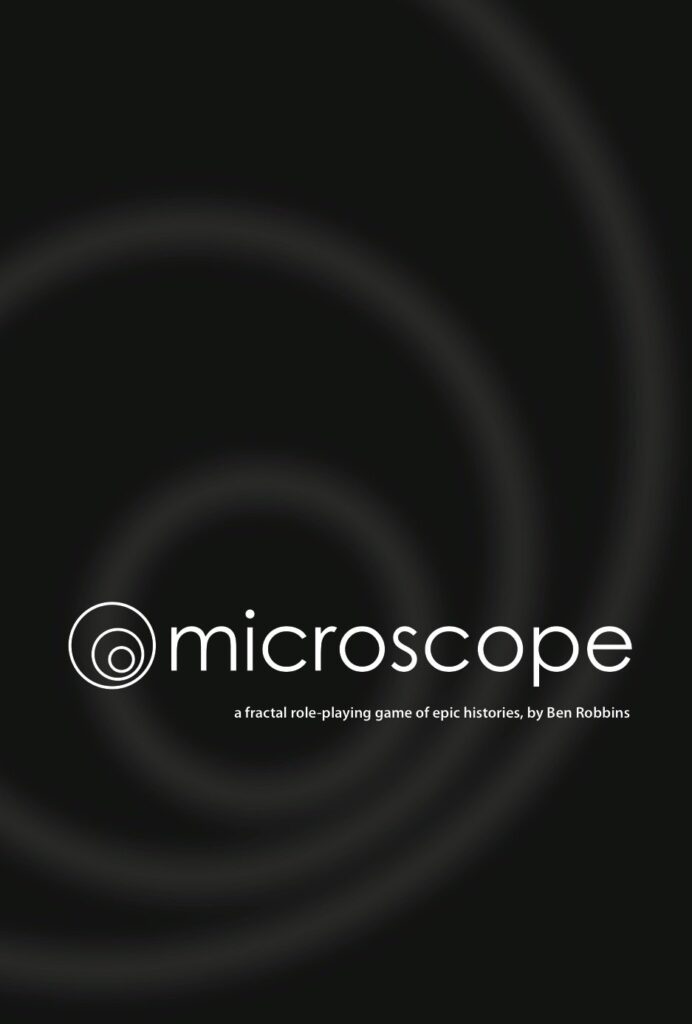
It’s time for another Top 5 list! This time, I’m laying out my Top 5 favorite generic RPGs. Please note: these entries are presented in no particular order.
5. Cypher System
The Cypher System from Monte Cook Games uses a generic version of the proprietary ruleset first introduced in their popular Numenera RPG. The Cypher System is very simple at its core: roll a d20, add modifiers based on your stats and abilities, and compare your roll to a target number determined by the GM. If you meet or beat the target number, you succeed. Otherwise, you fail. Target numbers are determined by rating a task from 1-10 and then multiplying that number by 3. Easy-peezy!
Characters are created using the formula of I am a/an (Descriptor/Adjective) (Type/Noun) who (Focus/Verb)s. Types are like classes, and there are four of them; Warrior, Adept, Explorer, and Speaker. These give you your base stats and some starting abilities, and can be further customized using Flavors like “Stealth” or “Technology.” The Descriptor comes from a list of adjectives like “Graceful” or “Deceptive” that gives you some bonuses and abilities related to that Descriptor. Finally, the Focus is a verb phrase like “Builds Robots” or “Fights Dirty” that not only gives you some idea of your character’s schtick but also provides abilities and/or resources that help you do the thing.
The book also comes with advice on how to run and customize the rules for many different genres, and various expansion books introduce content for more genres and abilities.
4. Genesys
The Genesys RPG from FFG/EDGE Studios was born from the Narrative Dice System first seen in their Star Wars RPG. The Genesys RPG uses a dice pool system with proprietary dice that not only determine the success or failure of a check but also whether or not there are any additional consequences (both positive and negative). You roll a number of dice based on a character’s rating in a particular Characteristic and Skill, as well as the difficulty rating of a task. If you have more successes than failures you succeed. If you’re left with a number of Advantage, Threat, Triump, or Despair symbols after canceling out, additional consequences may ensue.
At their core, characters consist of a Character Archetype and a Career. A Character Archetype could be a species like “Elf” or “Wookiee,” or it could be one of various different categories of people like “Laborer” or “Intellectual.” These determine some basic stats and abilities. Your Career is similar to your class, and could be anything from “Soldier” to “Hacker” to “Wizard.” It all depends on the sort of game and setting you want to run. These help to determine your starting skill ratings as well as some starting talents for your character.
The Genesys rulebook covers multiple genres like Fantasy, Steampunk, and Space Opera. Additional sourcebooks provide more advice and options for each of these genres and include a fleshed-out setting based on the companies’ many IPs.
3. Fate
Fate is a generic, narrative RPG produced by Evil Hat Productions. The latest iteration of the Fate ruleset is called “Fate Condensed,” which is a streamlined version of their Fate Core system; Condensed is sometimes called “Fate 4.5” since it doesn’t deviate from the previous ruleset enough to merit its own edition. Fate uses a set of proprietary d6s called Fate/Fudge dice. Instead of numbers, the dice have +,-, and (blank) sides. For any check, you roll 4dF + any modifiers and compare it to a target number determined by the GM. If your roll beats the target number, you fully succeed. If you tie, you can get a lesser success or a full success with a cost. If your roll is less than than the target number, you either fail or can get succeed at a major cost.
Characters consist of Skills, Aspects, and Stunts. Skills can include anything from “Drive” to “Fight” to “Stealth,” and your rating in a relevant Skill can add a bonus to applicable checks. Aspects are Fate’s “Big Thing;” they’re usually short, narrative phrases that tell you something important about your character, like “Greatest Swordfighter in the World” or “Sneaky Alien Scoundrel.” You can spend Fate Points to activate these Aspects when applicable to give yourself check bonuses or re-rolls. Finally, Stunts are special abilities characters can have that allow them to do awesome things that bend or break the standard rules a bit.
The main Fate rulebooks don’t cover specific genres, but multiple sourcebooks have been released that provide advice and new character options, including some for different genres and types of games.
2. Cortex Prime
Cortex Prime is a modular, generic RPG from Fandom based on previous iterations of Cortex Classic and Cortex Plus. Cortex Prime uses a dice pool system based on Traits rated from d4 to d12. Trait Sets can be things like Attributes, Skills, or even Values. By default, a player can add one die per relevant trait set to their pool, and add together any two dice as their result. This result is compared to a difficulty roll, usually by the GM. If the player’s result beats the difficulty number, they succeed. Any other result represents a failure.
Most Cortex Prime characters have Distinctions, which are similar to Fate’s Aspects. They are short, narrative phrases that represent something important about a character. When a Distinction is relevant to a roll, a player can add its die rating to their dice pool. Distinctions can also have Special Effects (SFX) which give characters more powerful abilities that can break or bend the default rules somewhat.
Cortex Prime’s greatest strength is its modular nature. There are many different subsystems and mechanics covered in the book that can be tweaked and combined to create the exact sort of game you wish to play. This might include Relationships and Values for a prime-time drama sort of game, or Powers and Affiliations for a superhero game. The Cortex Prime Handbook provides options and advice for various genres, and future sourcebooks may add or expand upon these.
1. Microscope
Microscope is a little bit different from the rest of the games on this list. It’s a fractal RPG from Lame Mage Productions. Instead of playing a single character in a given setting, players take on the role of history- and world-creators. Players design the premise of the history they’re creating, and proceed to come up with eras and events from scratch. If a particular event is of interest to one or more players, a scene can be played out to determine the exact nature and/or outcome of the event.
Microscope can be played as a standalone game or as a tool for creating the history of a setting your group can play in using a different RPG. Microscope doesn’t really cover specific genres, since it’s broad and generic enough to be used for any type of genre or setting without any modification.
What do you think about the games I chose? Do you agree or disagree with any of my selections? What are your favorite generic RPGs? Let me know in the comments below!
Do you have thoughts or questions about the article or suggestions for future content? Leave a comment below or drop me a line at jtdimino@d20radio.com.

